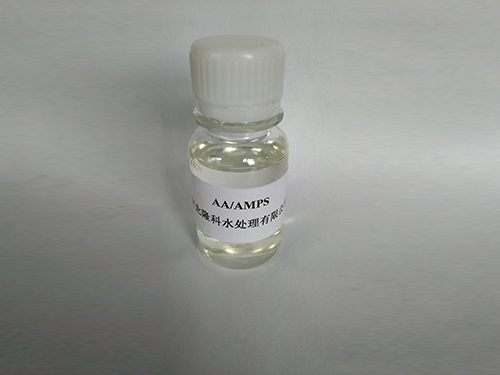High-Performance AA/AMPS Copolymer Scale Inhibitor

Product Overview
Acrylic Acid-2-Acrylamido-2-Methylpropane Sulfonic Acid Copolymer (AA/AMPS) (CAS No. 40623-75-4) is an innovative water-soluble polymer renowned for its exceptional scale inhibition and dispersion properties. This copolymer demonstrates superior thermal stability, resistance to hydrolysis, and tolerance to high electrolyte concentrations compared to conventional polyacrylic acids.
Manufactured by Hebei Longke Water Treatment Co., Ltd., our AA/AMPS copolymer complies with international standards and is widely recognized for its reliability in challenging industrial environments.
View Product DetailsIndustry Applications and Market Trends
The global Acrylic Acid-2-Acrylamido-2-Methylpropane Sulfonic Acid Copolymer (AA/AMPS) market is projected to reach USD 680 million by 2028, growing at a CAGR of 6.3% (Grand View Research, 2023). This growth is primarily driven by increasing demands in water treatment applications, where its superior scaling inhibition properties help industries meet stringent environmental regulations.
Major applications of AA/AMPS copolymer include:
- Cooling water treatment systems in power plants and refineries
- Scale inhibitors in oilfield operations
- Dispersing agent in reverse osmosis membranes
- Anti-scaling formulations for desalination plants
- Additive in detergent and cleaning products
Technical Specifications
As synthesized by Hebei Longke Water Treatment Co., Ltd., our Acrylic Acid-2-Acrylamido-2-Methylpropane Sulfonic Acid Copolymer (AA/AMPS) exhibits the following technical parameters:
| Parameter | Specification | Test Method |
|---|---|---|
| Appearance | Colorless to light yellow viscous liquid | Visual |
| Solid Content (%) | 48±1 | GB/T 6284 |
| pH (1% aqueous solution) | 2.0-3.0 | GB/T 6368 |
| Brookfield Viscosity (cps) | 150-800 | ASTM D2196 |
| Specific Gravity (25°C) | 1.15±0.05 | GB/T 4472 |
| Free Monomer (%) | ≤0.5 | HPLC |
| Thermal Stability | Up to 230°C | ASTM E537 |
Advantages and Performance Characteristics
The unique molecular structure of Acrylic Acid-2-Acrylamido-2-Methylpropane Sulfonic Acid Copolymer (AA/AMPS) provides several critical advantages:
Superior scale inhibition: AA/AMPS copolymer shows exceptional inhibition against calcium carbonate, calcium sulfate, barium sulfate, and calcium phosphate scaling even at concentrations as low as 5-10 ppm, significantly outperforming conventional polyacrylates.
Enhanced thermal stability: Unlike conventional polyacrylic acids that degrade above 175°C, our AA/AMPS maintains structural integrity up to 230°C due to the rigid sulfonic acid groups in the AMPS monomer.
High tolerance to electrolytes: Performs effectively in high-ionic-strength environments (up to 250,000 ppm TDS) where traditional scale inhibitors fail due to charge-screening effects.
Expert FAQ Section
The incorporation of sulfonic acid groups provides substantially better calcium tolerance, higher thermal stability, and improved performance in high-ionic-strength environments. The strong hydration energy of the sulfonic acid group enhances dispersion capabilities, particularly for iron oxide and clay particles.
Typical dosage ranges between 10-50 ppm depending on system parameters. For systems with high calcium hardness (>500 ppm as CaCO₃) and alkalinity, continuous feed of 15-30 ppm maintains effective scale control. Shock dosing at 50-75 ppm is recommended for initial treatment of scaled systems.
Performance remains stable across pH 5-9, with optimal calcium carbonate inhibition observed between pH 7.5-8.5. The copolymer's sulfonate groups remain fully dissociated across the entire pH range, unlike carboxylate-based inhibitors whose efficacy drops significantly below pH 7.
Use appropriate PPE including chemical goggles, gloves, and protective clothing. The product is mildly acidic (pH 2.0-3.0) and requires neutralization before disposal. Provide adequate ventilation during transfer operations. Spills should be contained and neutralized with soda ash or lime.
Yes, it is compatible with most oxidizing biocides (chlorine, bromine), non-oxidizing biocides, corrosion inhibitors (phosphonates, zinc salts), and other polymeric dispersants. Pre-compatibility testing is recommended for new formulations, especially when mixing with cationic polymers.
Our AA/AMPS copolymer is certified under ISO 14001 environmental management standards and REACH compliant. The product biodegrades >60% within 28 days (OECD 301D), exceeding regulatory thresholds for environmental acceptability.
Standard packaging includes 25kg polyethylene drums, 200kg polyethylene drums, and 1000kg IBC totes. Custom packaging solutions available for bulk orders exceeding 10 metric tons.
Contact Information
Hebei Longke Water Treatment Co., Ltd.
Address: No. 3, North of Haohua East Road, North Park, Neiqiu county Industrial Zone, Xingtai City, Hebei Province
Phone: 86-319-6678982 | +86-18733938789 | +86-16632965809 | +86-15030182392
Email: sale@longkehg.com
Website: https://www.lkpbtc.com
Industry References
1. International Water Conference (2023). "Advanced Scale Inhibitors for High-TDS Applications." https://www.eswt.com/IWC
2. Journal of Applied Polymer Science (2022). "Thermal Stability of Sulfonated Copolymers under Geothermal Conditions." https://onlinelibrary.wiley.com/doi/10.1002/app.52182
3. Corrosion Journal (2023). "Performance Comparison of Scaling Inhibitors in Simulated Oilfield Brines." https://meridian.allenpress.com/corrosion
4. Water Research Center (2024). "Advanced Polymers in Desalination Technology Report." https://www.water-research.net
5. European Desalination Society (2023). "Innovative Solutions for Membrane Scaling Control." https://www.edsoc.com
-
Water Treatment with Flocculant Water TreatmentNewsJun.12,2025
-
Polymaleic AnhydrideNewsJun.12,2025
-
Polyaspartic AcidNewsJun.12,2025
-
Enhance Industrial Processes with IsothiazolinonesNewsJun.12,2025
-
Enhance Industrial Processes with PBTCA SolutionsNewsJun.12,2025
-
Dodecyldimethylbenzylammonium Chloride SolutionsNewsJun.12,2025





